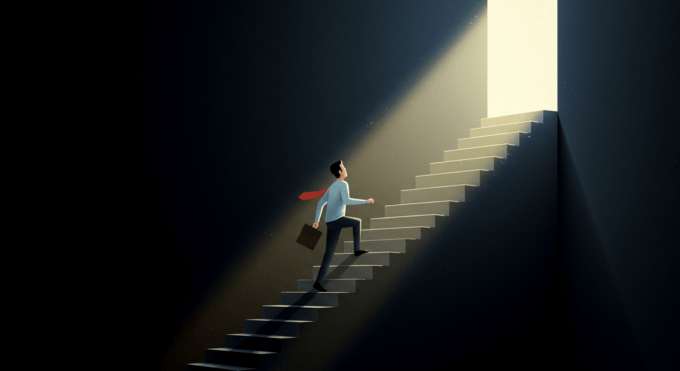The Monk and the Empty Bowl
Hiroshi’s days followed the same rhythm—rising before dawn, sweeping the monastery floors, preparing rice, and meditating under the rustling pines. The young Zen monk found comfort in the quiet discipline of monastery life. Everything had its place, its purpose.
One crisp autumn morning, as Hiroshi carried an empty rice bowl to the kitchen, he noticed something unusual—a frail old man sitting just outside the monastery gates. The man’s clothes were tattered, his eyes hollow yet gentle. Without speaking, the beggar gave a slight bow, his hands folded in silent request.
Hiroshi paused, unsure. Was it his role to help? Were visitors to the monastery not the concern of senior monks? He tightened his grip on the bowl and walked past, his heart heavy but uncertain.
That night, as he knelt in meditation, the image of the beggar lingered. What was true compassion in Zen practice? Was following the rules enough—or was something deeper being asked of him?
What the Master Saw in Silence
The next day, Hiroshi couldn’t help but glance toward the gate as he swept the courtyard. The beggar was gone, but his absence felt louder than his presence had.
As Hiroshi moved about his chores, he noticed his master quietly observing him. The old Zen master, known for his piercing eyes and gentle smile, said nothing. Instead, he moved slowly, tending to the same routine as always—refilling the incense, pruning the bonsai, sipping tea without haste.
But there was something in the master’s silence, something in how he noticed the smallest things, that unsettled Hiroshi. It was as if the master knew Hiroshi’s heart was restless.
Later that afternoon, Hiroshi approached the master during tea and hesitantly asked, “Is it wrong to feel torn between duty and… kindness?”
The master only smiled and refilled Hiroshi’s cup without a word.
That silence spoke volumes. Perhaps the question was not about right or wrong, but about awareness. Was Hiroshi truly seeing the beggar—or was he only seeing the rules he thought defined him?
The Struggle Between Rules and Heart
For days, Hiroshi couldn’t shake the quiet tension inside him. Every time he prepared rice or scrubbed the floors, his mind wandered back to the beggar’s hollow eyes. The monastery had clear rules—monks focused inward, free from worldly attachments or distractions. Acts of charity were reserved for formal ceremonies, not spontaneous gestures.
But as Hiroshi folded his robes each morning, a question kept surfacing: Was following structure enough, if it dulled the senses to suffering right outside the gate?
His internal struggle grew. Part of him clung to the comfort of discipline, fearing that stepping outside the lines would unravel everything he’d worked to cultivate. Yet another part whispered that true mindfulness wasn’t confined within walls.
He sat longer in meditation, searching for clarity. Each time, he felt caught between duty and heart. How could he practice Zen compassion without abandoning his role?
The tension gnawed at him, not as a burden, but as a necessary unraveling. He began to wonder if the rules he clung to were protecting his ego more than fostering real kindness.
The Lesson of the Falling Leaf
One afternoon, sensing Hiroshi’s inner turmoil, the Zen master beckoned him without a word. They walked together beyond the monastery walls, down a narrow path lined with ancient maple trees. The autumn air was crisp, carrying the faint scent of woodsmoke.
The master stopped beneath a tree and pointed silently to a single golden leaf, fluttering gently before it detached and spiraled to the ground.
“Tell me, Hiroshi,” the master finally spoke, “did the tree decide which leaf would fall first?”
Hiroshi shook his head, puzzled.
“The tree lets go,” the master continued, his eyes soft. “No clinging, no resistance. The leaf falls when it’s time.”
They stood in silence for a while, watching leaves drift, carried by invisible winds.
“Compassion,” the master finally said, “is like the falling leaf. It doesn’t calculate. It flows naturally when you stop holding tight to control—when you’re fully present, without separation between you and the world.”
In that moment, something inside Hiroshi loosened. He realized he had been clinging—not to monastery rules, but to his need for certainty. His heart, like the tree, was meant to open, not shield itself.
Extending Zen Compassion Beyond the Gates
The next morning, Hiroshi’s steps felt lighter as he walked through the monastery courtyard. This time, when he reached the gate, he paused—not out of hesitation, but with a calm awareness.
He noticed not just the absence or presence of the beggar, but the rhythm of life beyond the walls—the farmer leading his ox, a child chasing a stray cat, the quiet smiles exchanged between passersby. Every face, every gesture, was part of the same unfolding moment.
Without ceremony, Hiroshi began carrying an extra bowl of rice during mealtime. Sometimes he shared it with a visitor. Sometimes he offered kind words or simply listened to those who lingered at the gate. His actions were small, unnoticed by most. But each one felt deeply aligned—not forced, not out of obligation, but a quiet extension of his own inner strength.
He no longer worried about whether he was breaking rules or following tradition. Instead, he understood that Zen compassion practice wasn’t about grand displays—it was about dissolving the boundary between self and others, moving with mindfulness and openness wherever life met him.
Each act of kindness became another falling leaf, effortless yet powerful.
The True Wisdom of Zen Compassion Practice
In time, Hiroshi realized that the true heart of Zen compassion practice wasn’t found in a monastery rulebook or rigid discipline. It lived in each quiet moment when he allowed himself to truly see others—without judgment, without separation.
What his master had shown him, without ever preaching, was that real inner strength comes not from clinging to certainty but from letting go. Compassion is not a duty to perform; it’s a natural outflow of deep awareness, of recognizing the shared humanity in every face, even one weathered by hardship.
By practicing small, mindful acts of kindness—without expectation, without fanfare—Hiroshi found something unshakable. He no longer feared stepping beyond the gates because there was no longer a boundary between himself and the world. Each gesture became a meditation, a ripple of peace carried outward.
The wisdom is simple yet profound: Zen compassion practice strengthens the soul not by grand effort, but by opening yourself fully to the present, allowing kindness to arise naturally, like a leaf released by the wind.
And in doing so, life flows freely—without resistance, without separation, and full of kindness.








Leave a comment